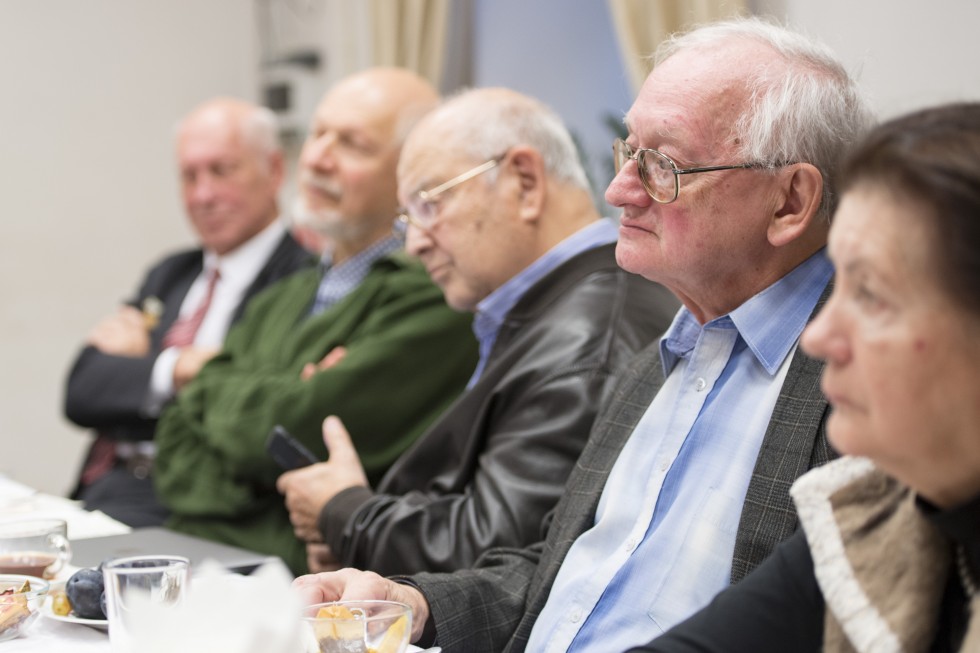“Aleksej Starobinskij Had a Desire for Higher Truth”
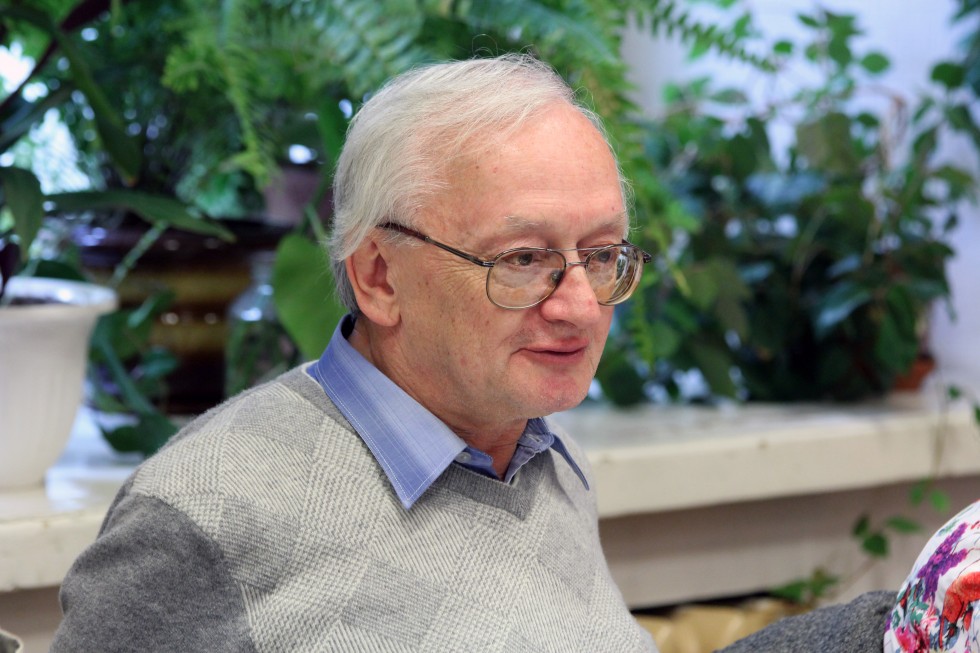
Aleksej Starobinskij
Aleksej Starobinskij was born in Moscow and graduated from the Moscow State University Department of Physics in 1972. He then worked under Yakov Zeldovich at the Landau Institute for Theoretical Physics, where, in 1975, he defended his doctoral dissertation, “Quantum Effects and the Amplification of Waves in Strong Gravitational Forces”.
Aleksej Aleksandrovich made a number of very significant discoveries in the modern field of cosmology. He was the author of the first works on the theory of inflation, which describes the state of the early universe before the Hot Big Bang. His work on the rotation of black holes anticipated and predated several of Stephen Hawking’s ideas.
At SFI, Starobinskij has been the co-Chairman of our ongoing “Physics and Theology” roundtable since 2013. The roundtable is a forum for discussion in which theoretical physicists and representatives of contemporary humanitarian disciplines and Christian Theology can bring together their knowledge.
“Thus, it is slightly remarkable that over the course of more than ten years we met regularly — every three months — with Aleksej Aleksandrovich Starobinskij and worked through an important cycle of questions not only with regard to contemporary theoretical Physics, but also general, very live and human questions, that I would even refer to as spiritual”, said Fr Georgij Kochetkov, founder of Saint Philaret’s Institute. “Especially in our most recent meetings and specifically at the request of Starobinskij, we discussed these spiritual questions. It even seemed to me that very soon — in one or two meetings — he would request to be baptised, and of course I considered this while praying for him during the course of his illness. But the Lord judged differently. Being just people, we can only regret this, but the Lord’s ways are inscrutable, and now, therefore, we are already praying for the rest and repose of newly departed Aleksej.”
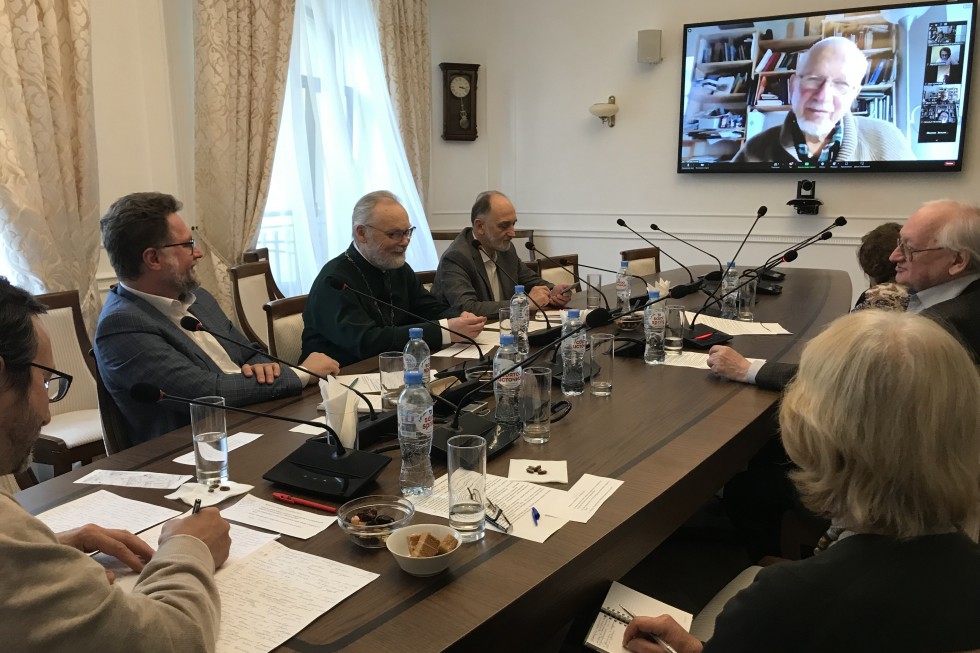
“Physics and Theology” round table discussion in St. Philaret’s Institute
“He’s a person you don’t forget,” added Fr Georgij, “and I don’t believe he’ll ever leave my mind or heart. He was a real friend to us and had a remarkable trust in what he heard from us, despite the fact that he was not only unbaptised, but did not even consider himself a believer. And this remarkable trust — his particularly vivacious relationship to everything that occurred during our “physics and clerics” discussions, as we jokingly called them, is of great worth. He is one of those extremely rare people who, as it happened, not having come to faith consciously, was always seeking truth and authenticity in an open, honest, and creative manner — and not only in his professional capacity; he sought a greater and higher Truth. He desired this Truth. And, of course, we never lobbied or tugged at him, but simply bore witness to that authenticity and truth which we ourselves know. This was very, very important for him, as he showed both in his entire countenance and in his words. I am thankful to God and Aleksej Aleksandrovich for the remarkable trust which he gave to me, personally.”
“We were like two co-Chairmen at our meetings,” Fr Georgij recalls. “And that long path that we walked together was specifically a spiritual-existential process, as is always the case when people seek reality and Truth in Christ. He knew this. His wife, Lyudmila Viktorovna, is a wonderful believing woman and was often with him when he came to us. They were inseparable, so it is very difficult for her at this moment. He required a slightly different image for faith, Christianity, the church, and orthodoxy. It seems that with us he found something which was near and native to him and akin to that approach which was a “fit” for him — not too feminine and emotional but also masculine, full of spirit and meaning, about which we also bore witness to him.”
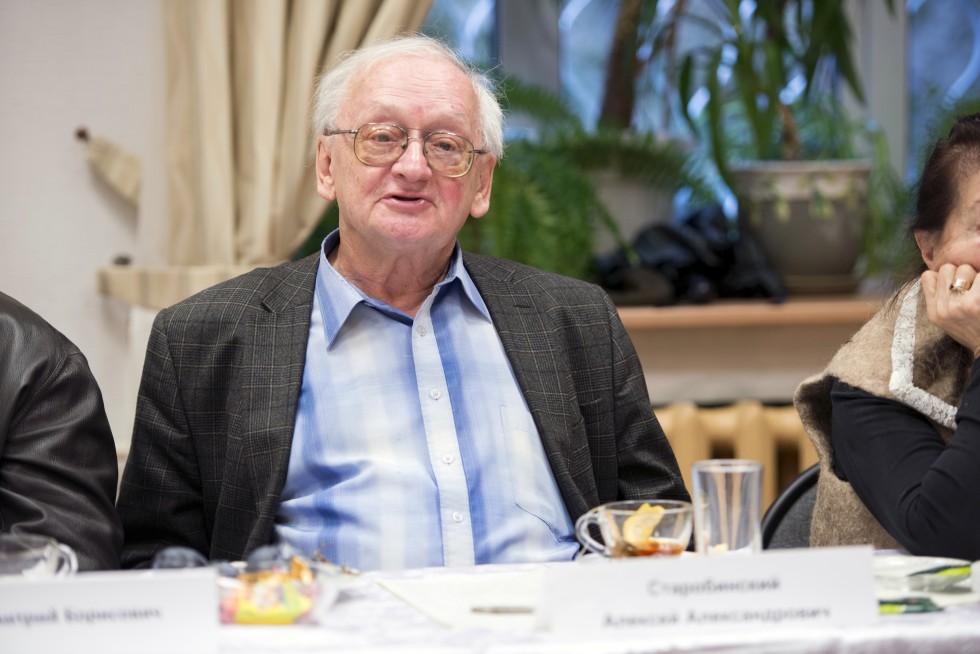
Aleksej Starobinskij at one of the “Physics and Theology” round table discussions
“Of course, I understand that with Aleksej Aleksandrovich’s death, our roundtables will probably stop and we now need to think about how to make their contents accessible to everyone,” says Fr Georgij. “They contained a great number of unique thoughts and discoveries. This is very important experience for the whole church and for modern science, moreover for the field of Physics, which is very complex.”
“Aleksej Aleksandrovich is an internationally renowned figure, and his work was significant for the whole world. He wasn’t only an Academician; there are different types of Academicians. He was a truly creative person who never stopped searching. And he didn’t only search, he also found. And I hope that we can say something similar about our own path. Thus, our acquaintance was through God’s providence and is something miraculous. Aleksej Aleksandrovich’s death is a shock, of course, but he has completed his work and his path,” said Fr Georgij Kochetckov.
“May God grant that such people meet again and never stop coming to our world,” he added. “His conscientiousness, honesty and openness were incredible. When he felt trust, he never forsook it. And for this, Glory to God, eternal memory to our dear friend.”
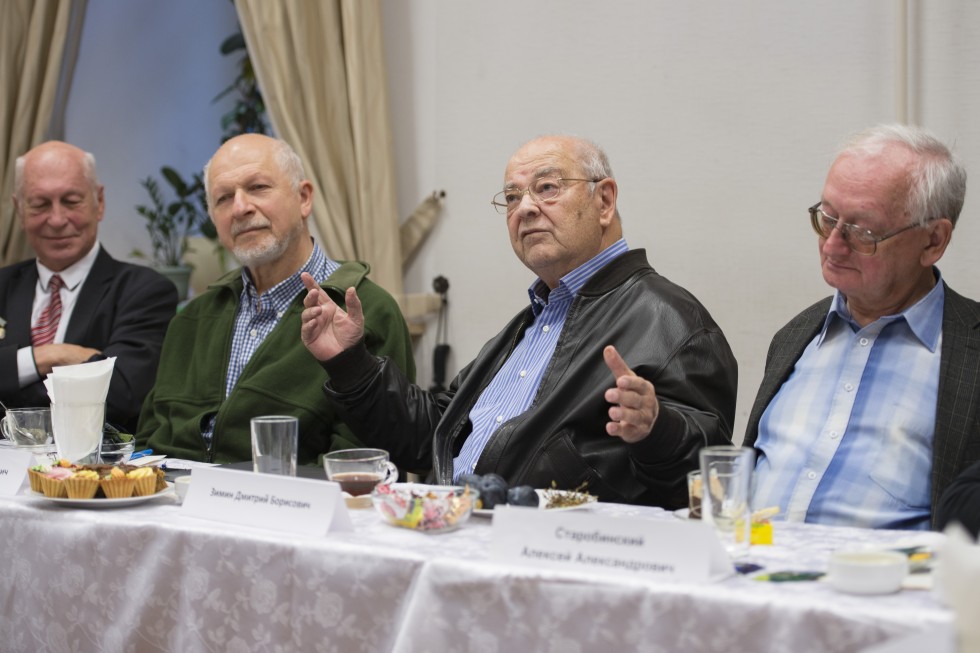
Aleksandr Bagrov, Gennadij Gorelik, Dmitrij Zimin, Aleksej Starobinskij at one of the “Physics and Theology” round table discussions in St. Philaret’s Institute
Aleksej Starobinskij worked at many Russian and international institutes of higher learning, and in particular at the Landau Institute for Theoretical Physics, the National Research University of Higher School of Economics, the École Normale Supérieure, the Henri Poincaré Institute, the Yukawa Institute of Kyoto University and the Research Centre for the Early Universe, at Tokyo University. He was an international member of the National Academy for the Sciences in the USA, the Germany National Academy of Sciences, the Norwegian Academy of Science and Letters, and two Indian academies.
Academician Aleksej Starobinskij was a laureate of many Russian and international prizes, and in particular the Gruber Prize in Cosmology (together with Viacheslav Mukhanov) in 2013. He was also a member of the editorial commission for several academic publications, including “JETP Letters”, “Astronomy Letters”, “Gravitation and Cosmology”, the “International Journal of Modern Physics D”, the “Journal of Cosmology and Astroparticle Physics”, “Classical and Quantum Gravity”, “General Relativity and Gravitation”, and “Physical Review D”.
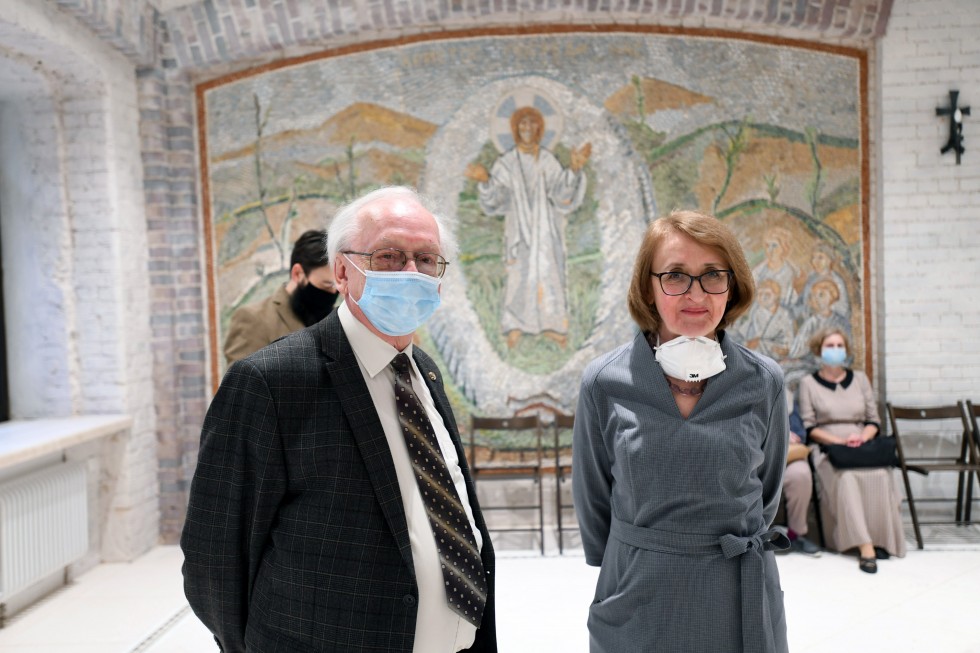
Aleksej Starobinskij and SFI Vice Rector for Academic Affairs Larisa Musina at the opening of SFI’s new academic and administrative building in Tokmakov lane, 2020
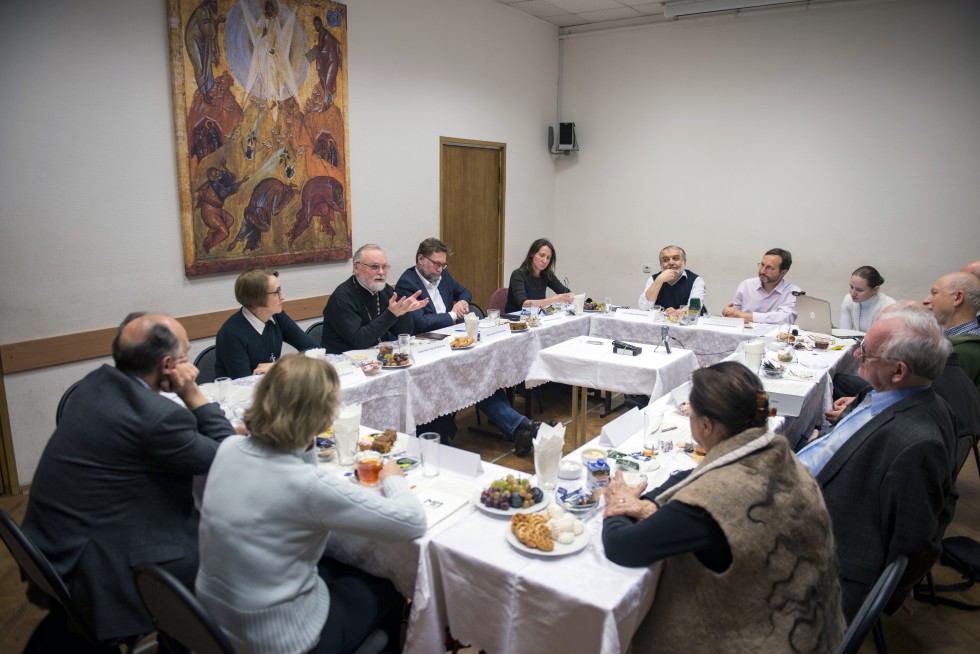
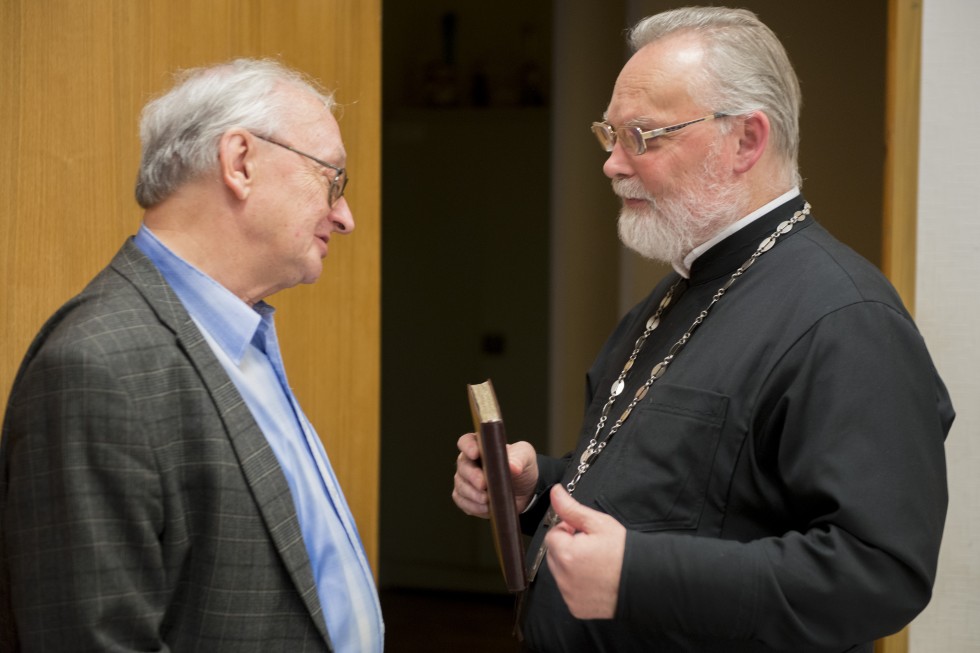
Aleksej Starobinskij and Fr Georgij Kochetckov
